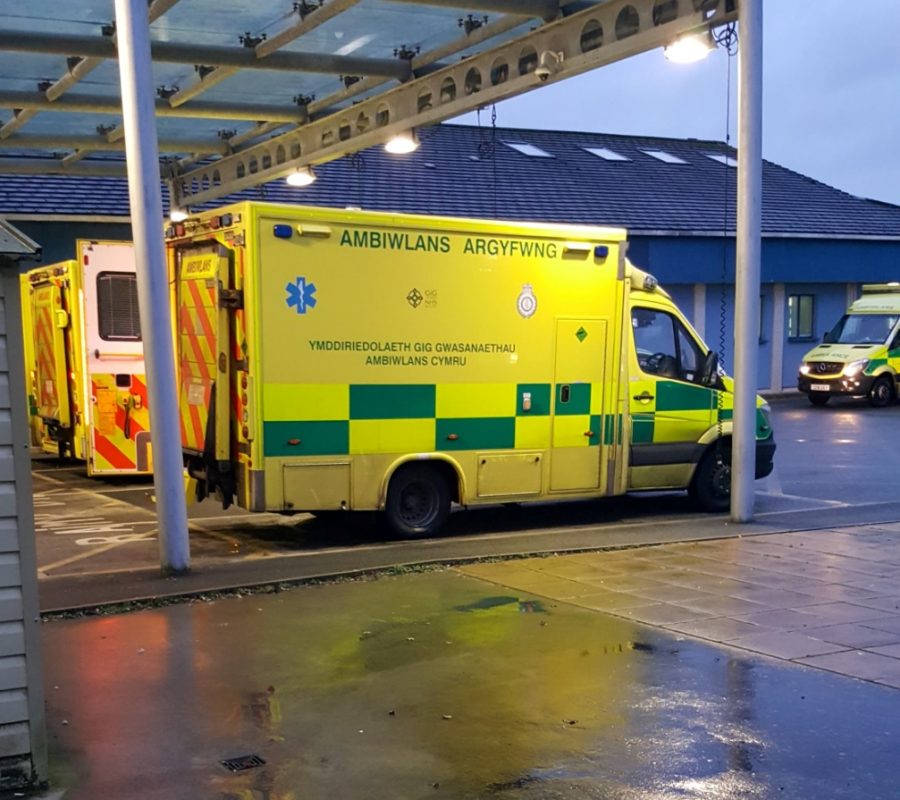AN INQUEST into the death of a newborn baby from Haverfordwest has determined the cause of death as shock due to an ‘acute and severe loss of blood’.
The inquest into Callum Ragan James’ death on May 5, 2016 was heard at County Hall over a two day period.
Senior Coroner for Pembrokeshire and Carmarthenshire Paul Bennett offered his condolences to Callum’s parents Mr and Mrs James from Haverfordwest.
He said: “I cannot imagine how distressed Mr and Mrs James felt when their son did not survive.
“This has been a very difficult inquest to hear. I would like to pay tribute to Mr and Mrs James in their fortitude of this case.”
The inquest heard how on May 5, Ellie James went from Withybush Hospital over to Glangwili Hospital after it was established she was in the early stages of labour, where she was met by midwife Ebba Lewis.
Mrs James was taken to a midwifery led unit at the hospital and was offered the use of a birthing pool.
It was from there that complications became apparent after a large amount of blood was seen within the pool.
It was decided that Mrs James would be taken to a bed and transferred to the labour-led ward, where there are consultants available.
Mrs James’ labour was progressing at a speed which thwarted attempts to transport her to the labour-led unit and she gave birth in the midwifery ward.
Mr Bennett confirmed that Callum was born at 11.08pm and at 11.34pm and steps were taken to get his lungs working and circulation started, but efforts to resuscitate him were abandoned at 11.34pm.
Mrs James questioned the judgement of whether she was giving birth in the appropriate ward, due to complications with her first pregnancy, and said she was assured she would give birth to Callum in a labour-led unit.
Mrs James also questioned her own judgement on whether abdominal pain she had experienced earlier in the labour played a part in the fate of Callum.
Family counsel Jodie Kembery, asked whether Mrs Lewis was aware of the pain that Mrs Lewis was experiencing and whether she should have in fact been transferred to the labour-led unit instead.
Giving evidence at the inquest, midwife Mrs Lewis said: “No, because she was not deemed as high risk [on arrival to Glangwili]. There were no signs of deviation from the normal, so she was classed as low risk.
“We asked how she is feeling. I do not recall specifically asking about the abdominal pain.
Mrs Leeves, the senior midwife on duty and who assisted Mrs Lewis with Callum’s delivery was also called upon to give evidence.
Speaking on the delivery, Ms Leeves told the inquest: “I entered, and Mrs James was on the bed with there being concern about blood loss in the pool. I looked at it and was concerned, but Mrs James remained stable so our main objective was to transfer her [to the labour-led ward] to listen to Callum’s heart.”
The speed in which the delivery progressed, halted all plans to transfer Mrs James upstairs to the labour-led unit.
She added: “We felt it was not appropriate to transfer Mrs James to the labour ward.
“There were strong urges to push, which is normal, and we felt there was no time.”
Mrs James told the inquest: “When Callum was born, I was ecstatic. To me he looked perfect. It was not until I saw the midwife’s face that I knew something was not right.”
Dr Patrick Forbes, Consultant Obstetrics and gynaecologist agreed that the decisions that the midwife made that day were right.
Dr Forbes also wrote two reports on the case.
He said: “It was absolutely correct to take Mrs James out the pool and I agree entirely that the appropriate action is to move the patient to the labour ward. However, one of the things I would dread in that situation is getting into the lift and the baby appearing.”
“Mrs James did not identify to be considered high risk in the second pregnancy,” said Dr Forbes, “which meant it was suitable, if she agreed, for delivery in the midwifery unit. It was appropriate for her to stay on the MLU at Glangwili when she arrived.
“The descriptions by Mrs Ebba and Ms Leaves are much in line with standard practice.”
Concluding the case, Coroner Paul Bennett said: “Callum died as a result of hypovolemic shock brought about by an acute and severe loss of blood which occurred during the course of his delivery at Glangwili Hospital on May 5, 2016.”

















